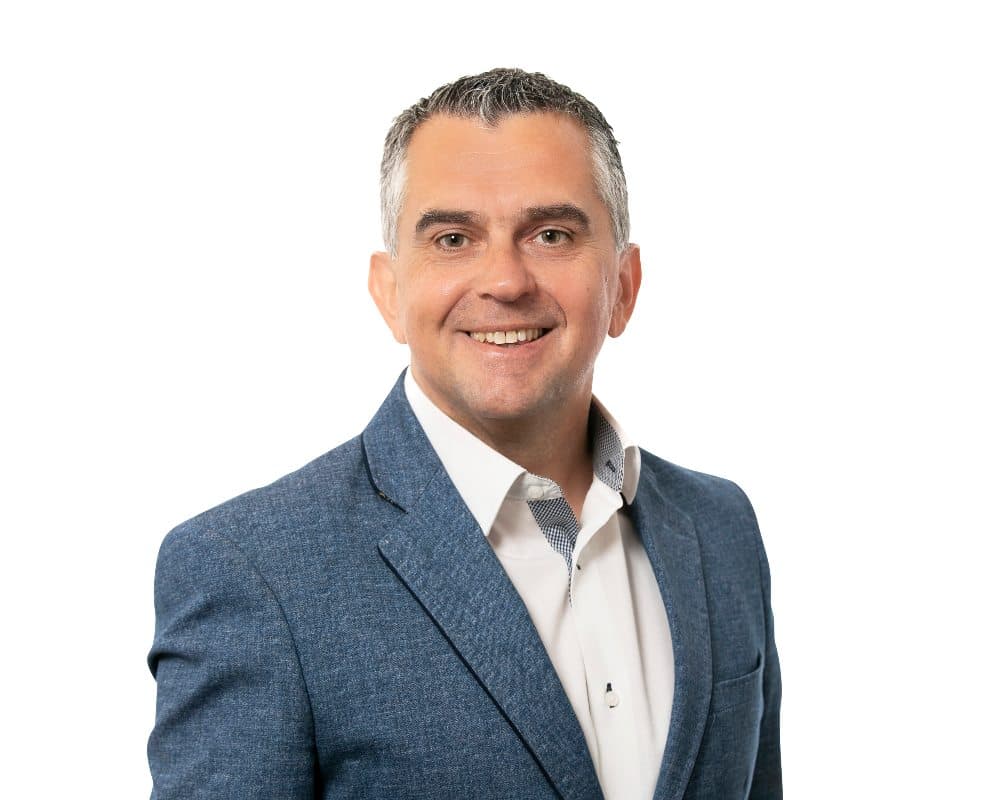In the first part of a series on venture capital, Dermot Berkery from Delta Partners and Paul Swift from Bank of Ireland talk about the future of Irish funding and the importance of backing emerging, disruptive businesses consistently across business cycles.
Much has been said and written about the rollercoaster state of venture capital in the past year, both locally and globally. But if there is one truth you can glean from the shifting tectonic plates of venture funding it is this: good Irish companies are consistently getting backed.
Among the leading venture capital players in the Irish market is Dublin-headquartered Delta Partners which takes its remit as a national player very seriously. In the past two years alone the investment firm has chalked up investments all over Ireland from Tailr in Waterford to LegitFit in Cork and VisionR and MarketSizer in Dublin, to name a few.
“It’s not just about being the first to write a cheque for these companies, we really want to guide them all the way to their exit”
Over time, the team has realised €1.8bn from the sale of companies such as Clavis (sold to Ascential plc), Sensl (sold to OnSemiconductor) and Neuravi (sold to Johnson & Johnson).
In 2022 Delta Partners launched a new venture capital fund that invests into seed and early-stage tech businesses in Ireland. The fund, with Bank of Ireland and Enterprise Ireland as cornerstone investors, has been supported by Fexco and several family offices.
We spoke to Dermot Berkery, a partner with Delta Partners, and Paul Swift, head of Tech, Media and Telecoms at Bank of Ireland about investing trends and the vital role venture capital plays in Ireland.
Backing the best
“In each of our funds, our goal is to back the best 25 to 30 Irish start-ups, it’s as simple as that,” Berkery states matter-of-factly. “We want to be the catalyst behind those companies to get them up and running. It’s not just about being the first to write a cheque for these companies, we really want to guide them all the way to their exit. We typically back firms in their first or second years and we try to exit them through their 6th to 10th years.
“But really it’s about looking back at the end of a fund and the satisfaction of knowing we backed close to 30 great Irish companies that have succeeded; that’s what gets us out of bed in the morning and it’s great to have a partner like Bank of Ireland on that journey.”
Delta Partners has been in the investment businesses as far back as 1994 and has invested in more than 120 businesses during that time, including successful exits like Digit and StitcherAds.
“The ambition for Delta and Bank of Ireland is to be at the intersection of backing early-stage, fast-growing Irish businesses at the earliest and most challenging points in their development. They may not be at the point where they are suitable candidates for bank debt but they do need banking facilities and by partnering with Delta it means that Bank of Ireland can engage with them early.”
Berkery describes venture capital as a “long-term game” – the average time that Delta is an investor in a business is probably seven years.
Global and local investment trends
The difficult funding picture globally has reached Irish shores, making it challenging for established, later stage companies to get funding. However, there is strong activity at the seed level thanks to Irish State investment via Enterprise Ireland and a cluster of funds like Delta.
Berkery explained that a realignment occurred after valuations for SaaS businesses in Silicon Valley and across the US reached record highs, often 15-20 times revenue.
“Since late 2023 there has been a adjustment of those valuations downward, which means less investment money in the market. So if you’re a later stage company looking for a lot of capital, it’s pretty difficult and it’s going to remain pretty difficult for a while.”
He points out that investors still have money to invest. “Many are keeping their powder dry and are focusing their investments in early-stage seed companies. That makes sense because investments made in 2024 will come into fruition close to 2030. So we shouldn’t be too worried about downturns in 2024/2025. We need to focus on upturns because they will matter later in the decade.”
One of the major trigger areas for investment right now, Berkery explains, are businesses that are creating defensible intellectual property (IP) in areas like deep-tech. He also notes that the age profile of “serious entrepreneurs” is getting younger. “The age profile of entrepreneurs is certainly different today than what we expected five years ago.”
If anything, Berkery points out that despite some companies distorting the market picture by still raising mega rounds, he would describe it as becoming a “pretty normalised market.”
The breadth of innovation
Paul Swift, Bank of Ireland
“Our position as a cornerstone investor with Delta Partners is a strong indicator of the bank’s commitment to supporting seed and early-stage businesses”
Bank of Ireland’s head of Technology, Media and Telecoms Paul Swift agrees that the level of innovation among new businesses creating cutting-edge products is inspiring. “Certainly, for me, it’s very exciting to work in this sector and to see the breadth of innovation among our customers, creating new businesses and developing cutting-edge products and services, to bring to market. How we play an active role is through facilitating introductions/creating partnerships between these businesses and the innovation ecosystem, both in Ireland and across various sectors and international markets.
“Our position as a cornerstone investor with Delta Partners is a strong indicator of the bank’s commitment to supporting seed and early-stage businesses. This fund provides capital to fledgling business at possibly the most critical time in their journey. These businesses are the employers of the future and we recognise the important role they play in Ireland’s economic development, reinforcing our motivations to support the technology sector.”
Swift explained that Bank of Ireland and Delta have now partnered on four different funds over the past decade. “This is testament to the strength of our working relationship. Venture capital is an important part of our offering because we want to support Irish businesses at every stage of their lifecycle. And as an investor in the fund, we also get to engage with entrepreneurs, access high growth markets, and gain valuable insights on future trends and market opportunities.”
Backing entrepreneurs is pivotal to the future, says Swift.
“Entrepreneurship and having the confidence to take a leap of faith to start a business is courageous and should be celebrated. Ireland has rightly gained a reputation for entrepreneurship and as a place to start, grow and scale a business. There are many excellent examples of businesses that have gone on to achieve global acclaim in recent years. Many of these businesses have products and solutions that were first to market, with huge growth potential.
“While it’s one thing to build a novel product or service, it is something significantly different, to go and commercialise it in numerous markets and territories, profitably. This requires lots of skill, tenacity and resilience and capability among founders and leadership teams. The learnings from scaling a business cannot be overestimated and instils great confidence in those that have the courage to do so and be successful at it. These pioneering businesses further enhance Ireland’s reputation, its brand and talent pool. All of these factors play an important role in Ireland’s current and future economic potential,” Swift said.
- Stay tuned for the next article in our series where we look at an emerging business that has received the backing of the Delta Fund
Main image at top: VisionR’s Shane O’Sullivan with Dermot Berkery from Delta Partners and Oran Mulvey from VisionR
-
Bank of Ireland is welcoming new customers every day – funding investments, working capital and expansions across multiple sectors. To learn more, click here







